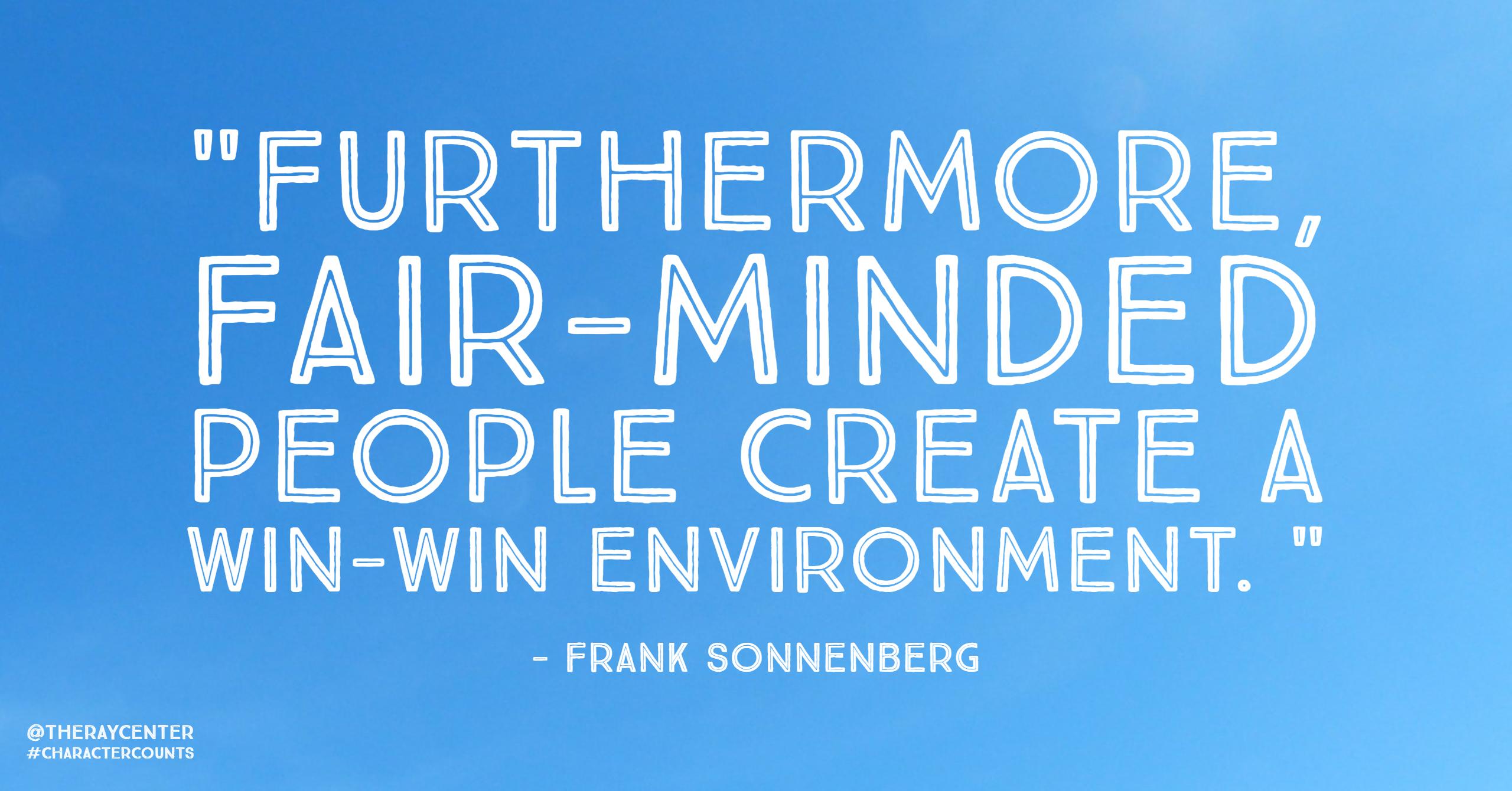Do you view yourself a fair-minded person?
Fairness affects everything we do. It shapes our judgment, impacts our credibility, affects our ability to trust, and influences our loyalty and motivation. It can bolster or damage a career, strengthen or torpedo a relationship, and advance or ruin a leader’s authority. What makes a person fair?
Rational. Fair-minded people employ clear and sensible thinking. They examine both sides of an issue before forming an opinion. Fair-minded people make decisions based on hard evidence and reason rather than emotion; they know the whole story rather than just some of the facts.
Objective. Fair-minded people make impartial judgments, free from personal bias. They disclose any bias before offering an opinion.
Open-minded. Fair-minded people are tolerant and non-discriminating, accepting of the views of others. Fair-minded people are true to their own beliefs without forcing them on others. As Oscar Wilde said, “Selfishness is not living as one wishes to live, it is asking others to live as one wishes to live.”
Reasonable. Fair-minded people challenge others by setting high, yet realistic, expectations. They ask of others only what they’re willing to do themselves. Furthermore, fair-minded people pay a fair day’s wage for an honest day’s work.
Even-handed. Fair-minded people give everyone an equal opportunity to succeed devoid of favoritism. They treat bosses and subordinates with the same level of respect. Furthermore, fair-minded people discourage any real or perceived favoritism that may result from conducting business with friends or acquaintances.
Sound judgment. Fair-minded people reward folks based on the value they provide rather than on the basis of subjective assessment.
Rule abiding. Fair-minded people follow the spirit as well as the letter of the law. They do what’s right rather than what’s politically expedient. Fair-minded people never twist rules for personal gain.
Contributor. Fair-minded people make a concerted effort to pull their own weight rather than living off the hard work of others. They “get in the game” rather than criticizing from the sidelines.
Deserving. Fair-minded people do not request special favors or accept unearned rewards. Furthermore, fair-minded people wait their turn in line rather than pushing their way to the front.
Sound leadership. Fair-minded people earn the respect of their colleagues through their expertise, personal integrity, and ability to foster trust rather than demanding it. When fair-minded people are in positions of power, they “do right” by people and go out of their way to serve as exemplary role models. Furthermore, fair-minded people create a win-win environment. They discourage situations in which people outmaneuver one another to gain the upper hand. They avoid zero-sum games in which one-person’s win translates into another person’s loss.
Selfless. Fair-minded people are empathetic, willing to walk in another person’s shoes before making a judgment. Furthermore, as fair-minded people climb the ladder of success, they lift up others and are genuinely happy for their success.
This is adapted from Follow Your Conscience: Make a Difference in Your Life & in the Lives of Others By Frank Sonnenberg © 2014 Frank Sonnenberg. All rights reserved.
 Frank is an award-winning author. He has written six books and over 300 articles. Frank was recently named one of “America’s Top 100 Thought Leaders” and one of America’s Most Influential Small Business Experts. Frank has served on several boards and has consulted to some of the largest and most respected companies in the world. Additionally, FrankSonnenbergOnline was named among the “Best 21st Century Leadership Blogs,” among the “Top 100 Socially-Shared Leadership Blogs,” and one of the “Best Inspirational Blogs On the Planet.” Frank’s new book, BookSmart: Hundreds of real-world lessons for success and happiness was released November 2016. © 2017 Frank Sonnenberg. All rights reserved.
Frank is an award-winning author. He has written six books and over 300 articles. Frank was recently named one of “America’s Top 100 Thought Leaders” and one of America’s Most Influential Small Business Experts. Frank has served on several boards and has consulted to some of the largest and most respected companies in the world. Additionally, FrankSonnenbergOnline was named among the “Best 21st Century Leadership Blogs,” among the “Top 100 Socially-Shared Leadership Blogs,” and one of the “Best Inspirational Blogs On the Planet.” Frank’s new book, BookSmart: Hundreds of real-world lessons for success and happiness was released November 2016. © 2017 Frank Sonnenberg. All rights reserved.
